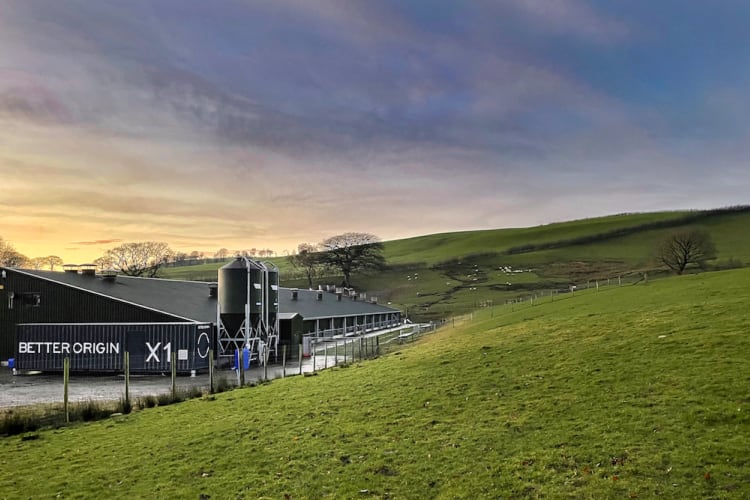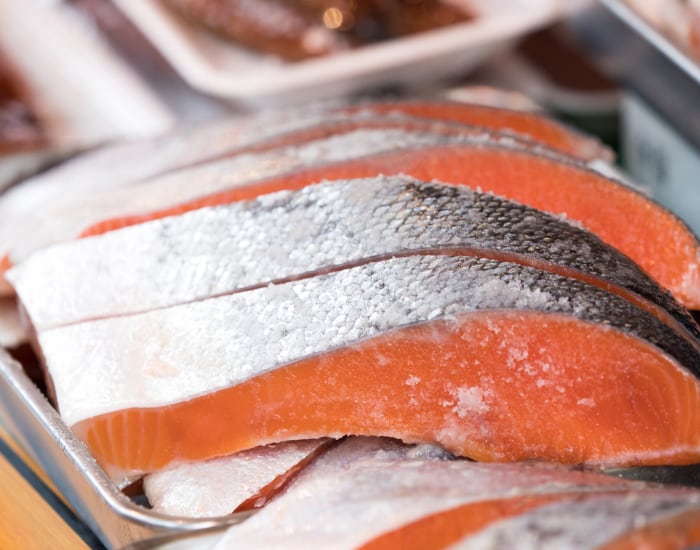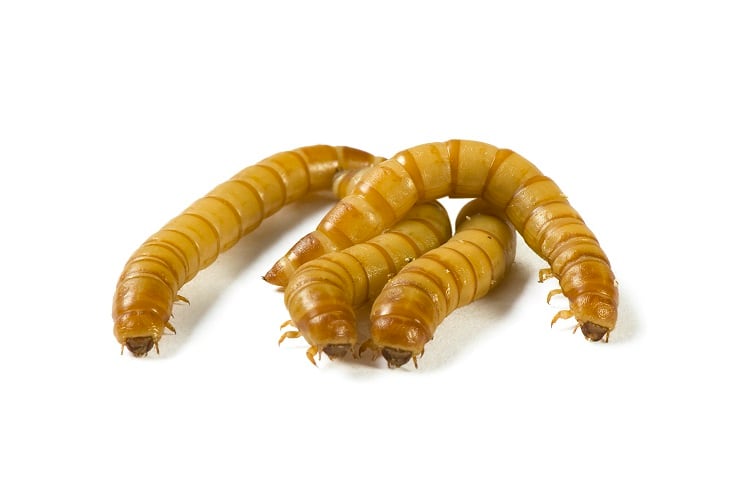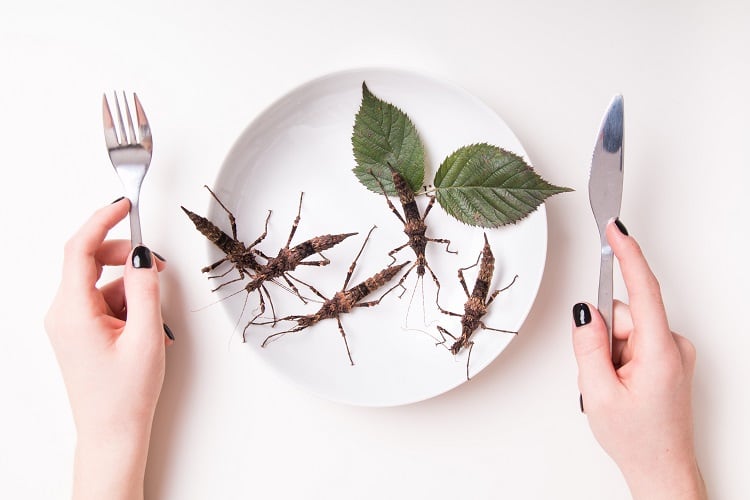“The events from this year and last have shown how fragile our global food system really is,” said Fotis Fotiadis, CEO and co-founder of Better Origin, the UK-based insect mini-farm.
Detailing the current food security outlook in Europe, Fotiadis relayed: “While we are still trying to digest how the pandemic has affected our global food supply chain, it is becoming more evident that we cannot rely solely on imported food products.”
How insects are part of our food security solution
The food industry currently places reliance of our animal feed sector on soy, most of which comes from South America. “A disturbance in the global soy supply chain can, therefore, have a dramatic impact on livestock production in the UK and EU,” Fotiadis observed.
The solution can be found in technologies that are being developed that allow for food and feed products to be grown locally. “Insects are part of this solution,” emphasised Fotiadis.
Better Origin strives to address the food security problem by producing animal feed in a decentralised way, local to the farmers and communities.
“Another force that is driving change within the food system is the governments’ ambitious Net Zero goals, including the British farming 2040 Net Zero target,” detailed Fotiadis. While strongly supporting the UK Government’s efforts to ensure further development in more sustainable and innovative technologies, Fotiadis notes: “But we must also focus on solutions that do not sacrifice food security.”
Championing food security, long-term
“Another force that is driving change within the food system is the governments’ ambitious Net Zero goals, including the British farming 2040 Net Zero target,” details Fotiadis. While strongly supporting the UK Government’s efforts to ensure further development in more sustainable and innovative technologies, Fotiadis notes: “But we must also focus on solutions that do not sacrifice food security.”
Our global population is expected to grow by 2 billion over the next 30 years, reaching 9.7 billion in 2050.
“Food security is crucial to feeding our population,” emphasises Fotiadis. “Food companies have a unique position in the supply chain, impacting both the farmer and the consumer,” urged Fotiadis.
In today’s landscape, there is the risk that without action, we will continue to see rising food prices and encounter food shortages.
“To ensure that climate action does not sacrifice food security, we must focus on solutions that improve yield and provide us with better food—while saving the planet,” noted Fotiadis.
The insect mini-farm built its Better Origin X1 unit with this in mind. The unit mitigates emissions from food waste while producing sustainable feed. Designed to fit within a local and resilient food chain, Better Origin sought to enable feed growth directly on the farm to ensure farmers are protected from the unpredictability of global food and feed supply and give them an edge in supplying high-quality produce.
“Short term solutions to food security and achieving Net Zero, including offsetting carbon, are not the answer, because they do not focus on the inefficiencies of our supply chains —instead of solving the problem, they cover it up,” states Fotiadis. “The sooner we start working towards mitigating on-farm emissions and supporting local sufficiency, the better for our society,” emphasised Fotiadis.
Creating a more sustainable food chain and achieving net zero targets
“Investment in sustainable technologies is key to ensuring Net Zero targets are achieved,” relayed Fotiadis. Working with and investing in start-ups and smaller companies whose sole focus is overcoming environmental issues can assist in ensuring supermarkets, food producers, and farmers accelerate their Net Zero targets and implement long-term changes.
“Supermarkets and food companies should look directly into their supply chains before using carbon offsets,” explained Fotiadis. “So much can be done without leaving the farm, including food waste mitigation, and replacing soy with a more sustainable feed."
With 1.3 billion tonnes of food wasted annually, Better Origin aims to recycle food waste into feed using insects. “This reduces the poultry industry’s dependency on imported feed such as soy and helps supermarkets and food producers achieve Net Zero,” Fotiadis said.
By replacing soy and tackling food waste, Better Origin’s solution can mitigate up to 530 tonnes of CO2 emissions a year.
Alternative protein sources, such as algae and insect feed, are growing in popularity as the food industry turns to how we can increase animal welfare and eliminate land-heavy crops.
“Insects need less land, water, and energy compared to any other feedstock,” detailed Fotiadis. “They are also a better source of protein thanks to their rich amino acid profile,” states Fotiadis. Insects can also be grown locally, removing the associated impact of transportation on the environment.
Commenting on the benefits of using insects, Fotiadis explained: “They also need minimal supervision – the whole process can happen inside a standard shipping container, with feeding, temperature, and growth managed by AI.”
Using AI to secure food
Food and agriculture are welcoming a plethora of innovations, from vertical farming, precision agriculture and digitization, and upcycling, to robotics and AI.
“AI and automation can also make maintenance much simpler and hands-off, meaning decentralised (local) solutions like the Better Origin X1 can directly help with localising the food supply and ensuring food security,” says Fotiadis. “Thanks to AI-powered maintenance, they also become more cost-effective,” outlined Fotiadis.
The hope is that the use of technology results in a food chain that is more solutions-focused, more sustainable and more secure.
“So, in a way, technology like this allows us to be bolder and implement solutions that help us create a more sustainable food chain."




